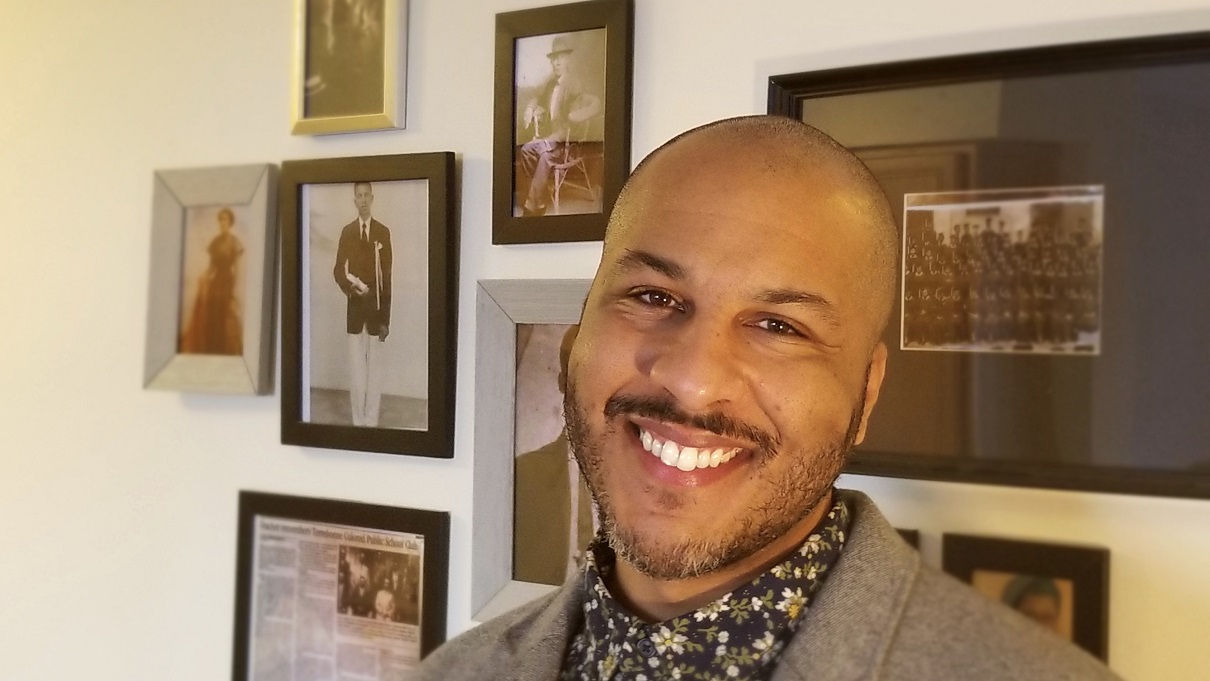Frederick Staidum
Associate Professor, Affiliate Faculty of Women’s Studies and Gender Studies, Affiliate Faculty of Institute for Racial Justice
- Office Location: Crown Center 451
- Phone Number: 773.508.2272
- E-mail: fstaidum@luc.edu
About
My research and teaching are focused on American literature and culture of the long 19th century, especially African American and African Diaspora literatures and cultures. My workinterrogates representations of race, gender, and sexuality alongside the symbioses of modernity and coloniality, liberalism and racial capitalism, especially as these developments crisscrossed and were shaped by the Atlantic world of the late eighteenth and nineteenth centuries. I am particularly interested in the ways in which Blackness and its varied genderings (or ungendering) and sexualizations were not distinct from modernity and, later, liberalism but rather central to the creation and promulgation of these discourses and their most cherished concept—progress,whether that progress be temporal, spatial, political, or so on.Across my published writing and current book project, New Orleans and Racial Identity in Nineteenth Century Writing: Geographies of Difference and Atlantic Liberalism, I trace the contours of this consanguinity amongst progress, imperialism, and slavery, such as the unfree, interpenetrated temporality of Emancipation (“The Durée”) or abolitionism’s foreclosure of black masculinity (“‘Are We MEN!!’”). Ultimately, I argue that the creation of racialized and gendered Others, like the Black male supplicant (“‘Are We MEN!!’”), the fungible slave (“Black Studies”), and the exoticized city (“Mapping”; New Orleans and Racial Identity), areindispensable constituents within conventional accounts of progress.As an educator, I aim to cultivate engaged, life-long learners, who can recognize and dismantle unjust systems of hierarchy, inequality, and normativity. I empower students to creatively and soundly interpret racial, classed, gendered, and sexual representations in literature and their rolesin making the modern world. We achieve these objectives through interdisciplinary learning activities focused on close reading, aesthetic and formal interpretation, historical contextualization, theoretical application, and critical discourse analysis.Degrees
- BA, African World Studies, Dillard University (2005)
- MPS, African and African American Studies, Cornell University (2007)
- MA, African American Studies, Northwestern University (2011)
- PhD, African American Studies, Northwestern University (2015)
Program Areas
-
Nineteenth-Century US American Literature and Culture
-
African American Literature and Culture
-
African Diaspora Literature and Culture
-
Race and Ethnicity Studies
-
Gender and Queer Studies
-
Cultural Studies
-
Critical Theory
-
Digital Humanities
Research Interests
-
Early Black Fiction, Poetics, and Polemics
-
The Slave Narrative
-
Expressive Arts and Visual Culture of the Age of Revolution and Long Nineteenth Century
-
The History of Colonialism and Modernity
-
The History of Chattel Slavery, Freedom, and the “Afterlife of Slavery”
-
Liberalism and Racial Capitalism
-
Black Studies, Black Intellectual Thought, and the Black Radical Tradition
-
Critical Race Theory
-
Black Queer and Trans Feminisms
-
Geographies of Race and Gender
-
Temporality and Philosophies of Progress
Selected Publications
-
"Black Studies and Trans Literature." In The Routledge Handbook of Trans Literature, edited by Sabine Sharp and Douglas Vakoch, 241-256. New York: Routledge, 2024.
-
“Mapping Slavery’s Attraction: A Case for an Autoethnographic Digital Humanities.” Transforming Anthropology 30, no. 1 (April 2022): 48–65.
-
“The Durée of Emancipation and the Crisis of Freedom in Antebellum BlackWriting.” South Atlantic Quarterly 121, no. 1 (January 2022): 33–51.
-
“‘Are We MEN!!’: Blackness, (Non)masculinities, and the Grammar of the Interrogative in Early Anti-Slavery Discourse.” The Black Scholar 49, no. 2 (Summer 2019): 11-26.


